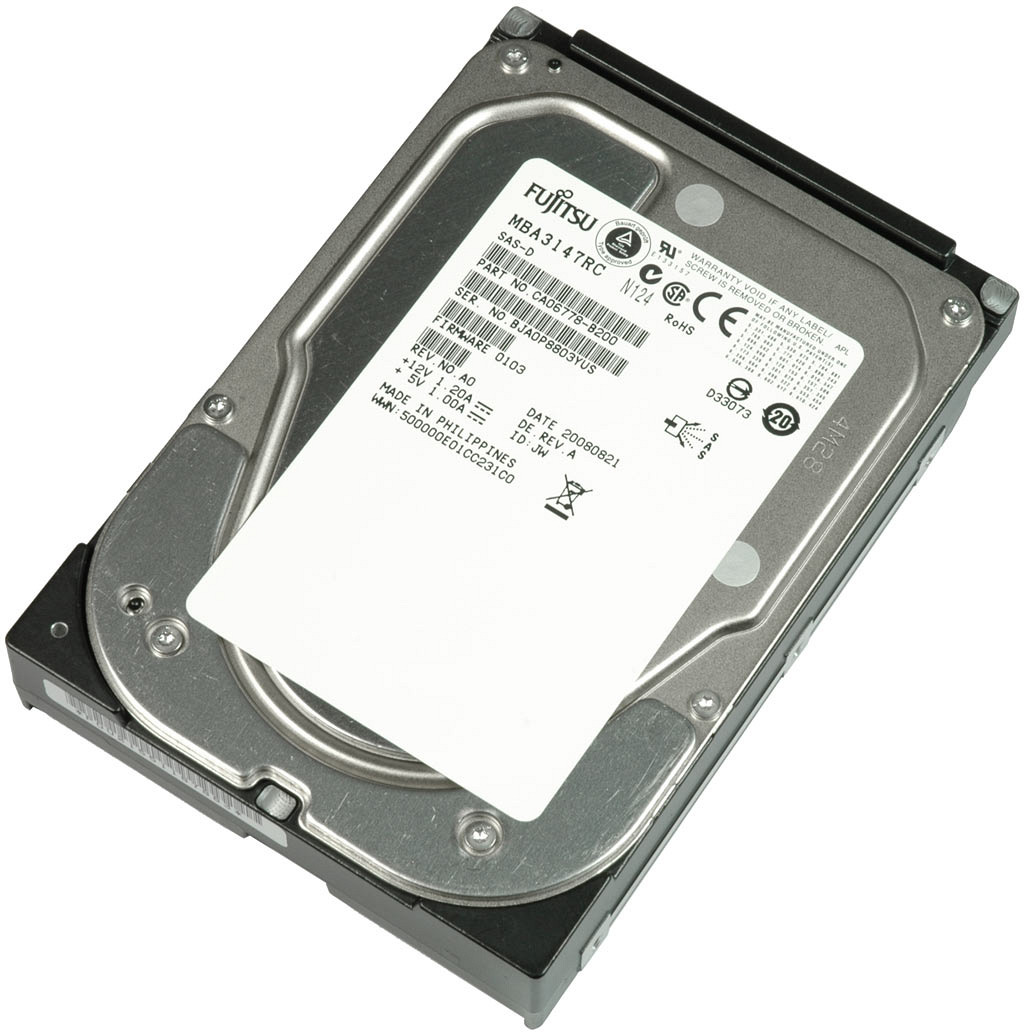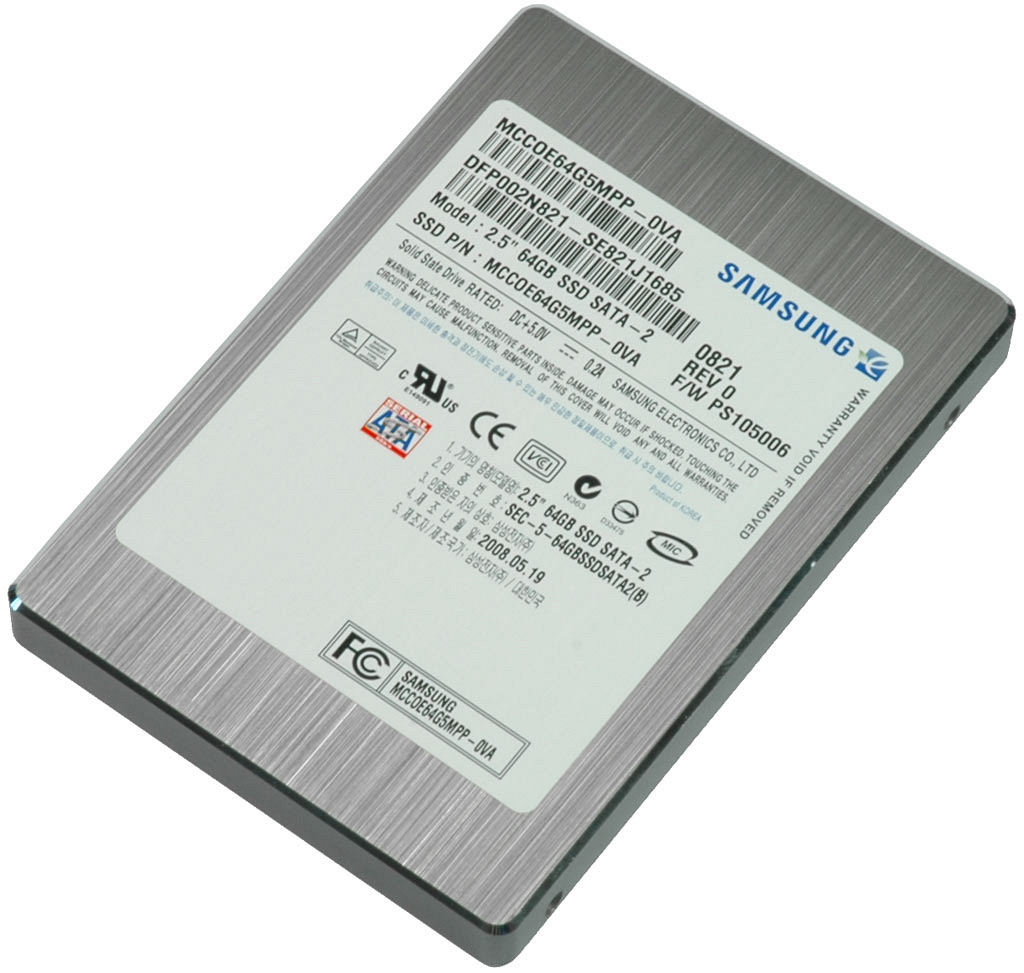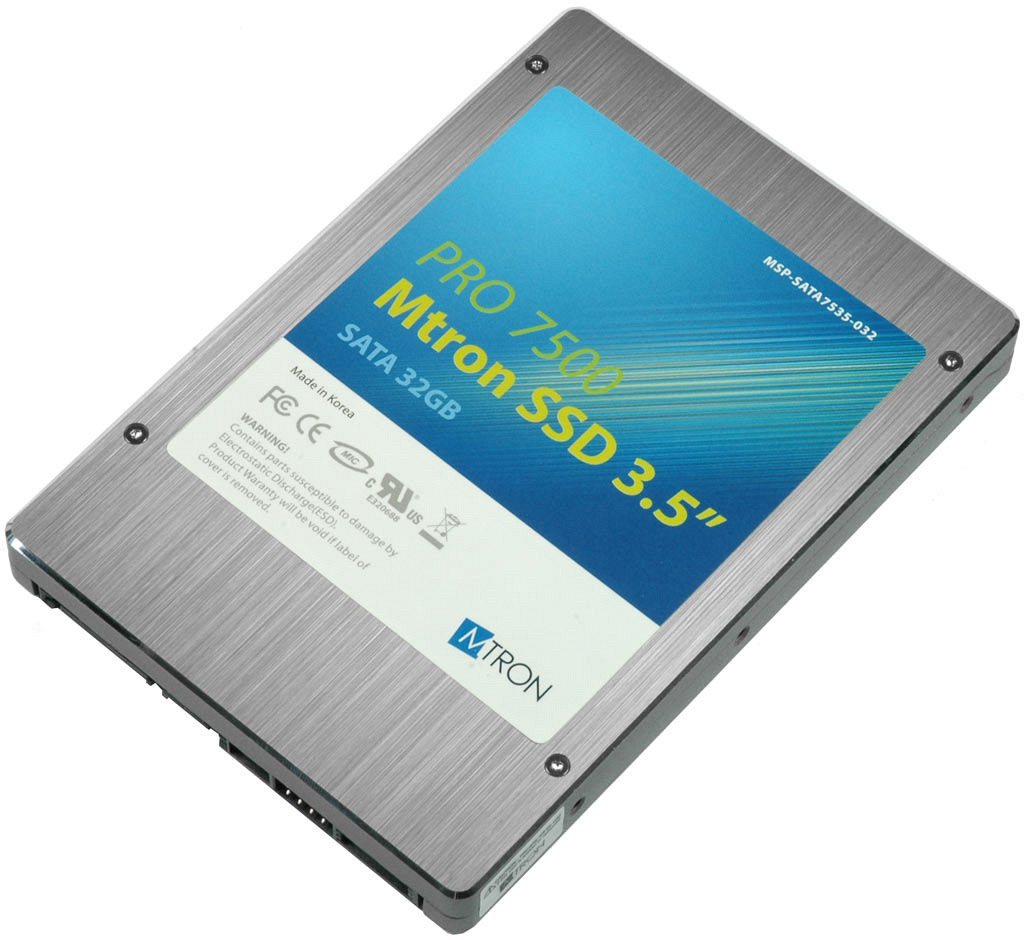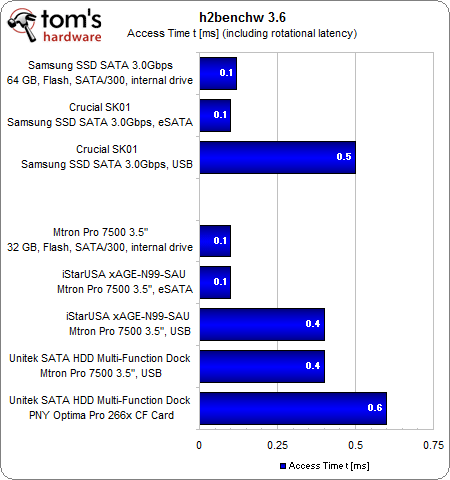Storage Accessories For Easier HDD Handling
Test Setup And Access Time
We used a 32 GB flash drive to test the storage accessories because we wanted to determine possible bottlenecks, and because the rather low capacity is great for finishing storage benchmarks quickly.
| System Hardware | |
|---|---|
| Processor(s) | 2 x Intel Xeon Processor (Nocona core)3.6 GHz, FSB800, 1 MB L2 Cache |
| Platform | Asus NCL-DS (Socket 604) Intel E7520 Chipset, BIOS 1005 |
| RAM | Corsair CM72DD512AR-400 (DDR2-400 ECC, reg.)2 x 512 MB, CL3-3-3-10 Timings |
| System Hard Drive | Western Digital Caviar WD1200JB |
| Test Hard Drive I | Seagate Barracuda 7200.9 ST3500641 500 GB, 7,200 RPM, 16 MB Cache, SATA/300 |
| Test Hard Drive II | Samsung 64 GB SATA-II Flash SSD, SATA/300 |
| Test Hard Drive III | Mtron Pro 7500 32 GB SLC Flash SSD, SATA/300 |
| Mass Storage Controller(s) | Intel 82801EB UltraATA/100 Controller (ICH5)Promise SATA 300TX4 Driver 1.0.0.33 |
| Networking | Broadcom BCM5721 On-Board Gigabit Ethernet NIC |
| Graphics Card | On-Board Graphics ATI RageXL, 8 MB |
| System Hardware | |
|---|---|
| Performance Measurements | c't h2benchw 3.6 PCMark05 V1.01 |
| I/O Performance | IOMeter 2003.05.10File server-Benchmark, Web server-Benchmark, Database-Benchmark, Workstation-Benchmark |
| System Software&Drivers | |
|---|---|
| OS | Microsoft Windows Server 2003 Enterprise Edition, Service Pack 1 |
| Platform Driver | Intel Chipset Installation Utility 7.0.0.1025 |
| Graphics Driver | Default Windows Graphics Driver |
Fujitsu MBA3174RC
Samsung 64 GB SATA-II Flash SSD
Mtron Pro 7500
Results: Access Time
We first listed the individual hard drives and their performance levels, followed by the storage accessories we tried. Samsung’s 32 GB SLC flash SSD was used to test the Crucial SK01 kit, while we used an Mtron Pro 7500 3.5” SSD with the iStarUSA and Unitek devices.
Access time is several times longer via USB 2.0 when compared to eSATA, both for Crucial’s and iStarUSA’s devices. Still, we’re looking at excellent performance that cannot be considered an issue. eSATA is clearly faster, but USB 2.0 doesn’t slow down access time by too much.
Get Tom's Hardware's best news and in-depth reviews, straight to your inbox.
Current page: Test Setup And Access Time
Prev Page Unitek SATA HDD Docking Station Combo Next Page Read/Write Throughput


